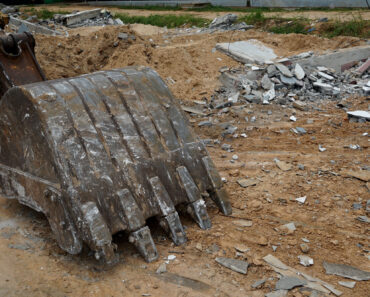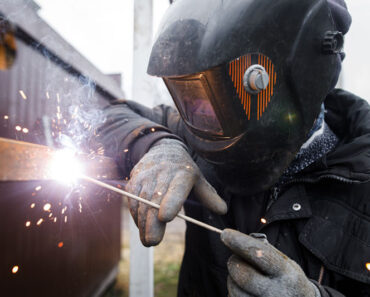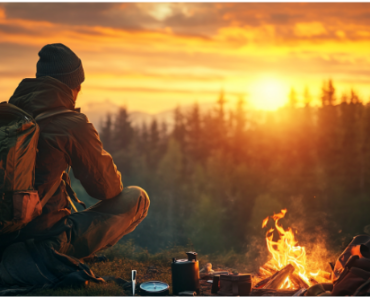Picture this: the grid is down, cash is useless, and stores are empty. What do you do when you need something? You barter. Bartering supplies isn’t an outdated, old-fashioned concept; it’s your lifeline in a survival economy where money is worthless. This guide teaches you bartering skills in order to prepare before it’s too late.
Why Bartering Works When SHTF
In a disaster, money often loses its value almost immediately. Gold can’t feed you, and a wad of cash won’t keep you warm. That’s why bartering becomes essential during any crisis. It’s all about trading what you have for what you need—no intermediary banks, credit checks, or other hassles.
Food, water, and tools replace money as the new currency. For example, trading a can of beans for a blanket helps you adapt and survive in an outdoor environment. Bartering does more than just help you get what you need. It also builds trust and creates strong community bonds. These connections may save your life when resources run low.
What to Stockpile for Bartering
If you want to barter, collect items people will always need. Focus on small, useful, and easy-to-carry items.
- Food: Stockpile rice, beans, and canned goods as they’re easy to store and always in demand. Coffee, even as a luxury, often becomes a high-value trade item.
- Water Purification: Filters and tablets make water from any source safe to drink. A LifeStraw can save someone’s life and make you a trusted ally in the process.
- First Aid Supplies: Bandages, painkillers, and antiseptics are small but valuable in emergencies. These can save lives and help build trust with trading partners.
- Fuel: Propane, fire starters, and batteries are crucial when power is unavailable. Candles can also provide light and heat in a pinch.
- Hygiene Products: Soap, toothpaste, and feminine supplies are essential for staying healthy. These items are often overlooked but highly sought after.
- Tools: Multi-tools and duct tape are versatile, lightweight, and incredibly useful. These are must-haves for countless survival needs and trade opportunities.
Start with small, practical items and expand your inventory over time. The more useful an item is, the more valuable it becomes in a trade.
Skills Are Even More Valuable ️
If you don’t have supplies, don’t worry—skills are even better. Unlike items, skills don’t run out. This makes them invaluable during hard times.
- Basic Medical Knowledge: Knowing how to stitch a wound or clean an infection can save lives. Even basic CPR or first aid makes you indispensable in emergencies.
- Mechanics: Fixing cars, generators, or engines keeps everything running when no one else can help. Your ability to repair machines makes you a vital member of any group.
- Gardening: Growing food ensures sustainability and offers long-term survival benefits. Teaching others how to grow crops strengthens your role in the community.
- Hunting and Fishing: Providing fresh meat or fish is central to any survival plan.
- Home Repair Skills: Fixing roofs, sealing leaks, or insulating homes keeps shelters functional. These skills become life-saving in harsh conditions and are always in demand.
Start practicing these skills now, even if it’s just the basics. The more you know, the more valuable you’ll be when things get tough.
How to Negotiate a Fair Trade
Bartering is about more than swapping goods. It’s also about building trust and knowing your worth. Mastering the art of negotiation can make a huge difference.
- Start Small: Use low-value items to test the waters and build trust with others. Save big trades for business partners whose relationships with you are solid.
- Know Your Worth: Understand what you’re offering, and its value based on local needs. Scarcity often increases demand, so plan accordingly.
- Stay Flexible: Sometimes, offering services instead of goods works better for both parties. Creativity in trading opens new doors.
- Be Polite but Firm: Respect others while standing your ground to avoid exploitation. Protect your safety and your resources.
- Walk Away If Needed: Trust your instincts if something feels off or unsafe. It’s better to skip a trade than risk a bad outcome.
Negotiation builds stronger networks and ensures everyone feels satisfied with their trades.
Staying Safe While Bartering
Let’s face it—bartering comes with risks, especially during desperate times. Staying cautious can help protect you and your resources.
- Pick Neutral Locations: Meet in public spaces to minimize danger and reduce risks. Never invite strangers to your home unless you fully trust them.
- Bring Backup: A trusted buddy can watch your back and add security during trades. They might also help you notice red flags you’d miss alone.
- Keep It Simple: Only bring and show what you plan to trade at that moment. Flashing too much can attract the wrong kind of attention.
- Stay Alert: If a situation feels wrong, trust your gut and walk away immediately. Your safety is always more important than completing a trade.
Safety should always come first, no matter how good a deal might seem. One small mistake could lead to unnecessary risks on property or your life.
Building Your Barter Network
In a world where resources are scarce, relationships matter more than ever. Start creating your barter network now, before it’s too late.
- Talk to Your Neighbors: Learn what skills and items people around you have. Building trust early on makes trading smoother during tough times.
- Practice at Local Events: Visit flea markets, swap meets, or farmers’ markets to sharpen your bartering skills. These experiences also help you build a good reputation as a reliable trader.
The more people you know, the easier it is to find what you need. In a crisis, strong connections will often serve as your most valuable resource.
Final Thoughts
Bartering isn’t just about trading things. It’s about resourcefulness, survival, and relationships. By stockpiling wisely, learning valuable bartering skills, and practicing negotiation, you’ll be ready for whatever comes your way.
Start small today. Gather your essentials, sharpen one or two skills, and test your bartering chops. When the world changes, being prepared won’t just feel smart—it’ll save your life!
FAQs: Bartering Skills
- What items are best for bartering?
Focus on essentials like food, water, medical supplies, and tools. - Are skills more valuable than goods?
In many cases, yes! Skills like medical care and mechanics are always in demand. - How do I practice bartering skills?
Try it at flea markets or through online swaps to get comfortable with trading. - What’s the safest way to barter?
Trade in public spaces, bring a buddy, and avoid showing all your goods at once. - Should I barter with strangers?
Be cautious. Build trust first or stick to your network. - What skills should I learn for bartering?
Medical care, mechanics, hunting, and home repair are highly valuable. - Is bartering legal?
In most cases, yes. Check local laws for any restrictions. - Can bartering replace money?
In a crisis, it often does. Essentials become more valuable than cash. - What if I have nothing to trade?
Offer labor or learn a valuable skill to trade instead. - How do I avoid scams?
Stay alert, trade small at first, and always trust your gut.
Master the art of survival today! Head over here for exclusive guides on improving your bartering skills, building your trade network, and stocking the perfect items.






























